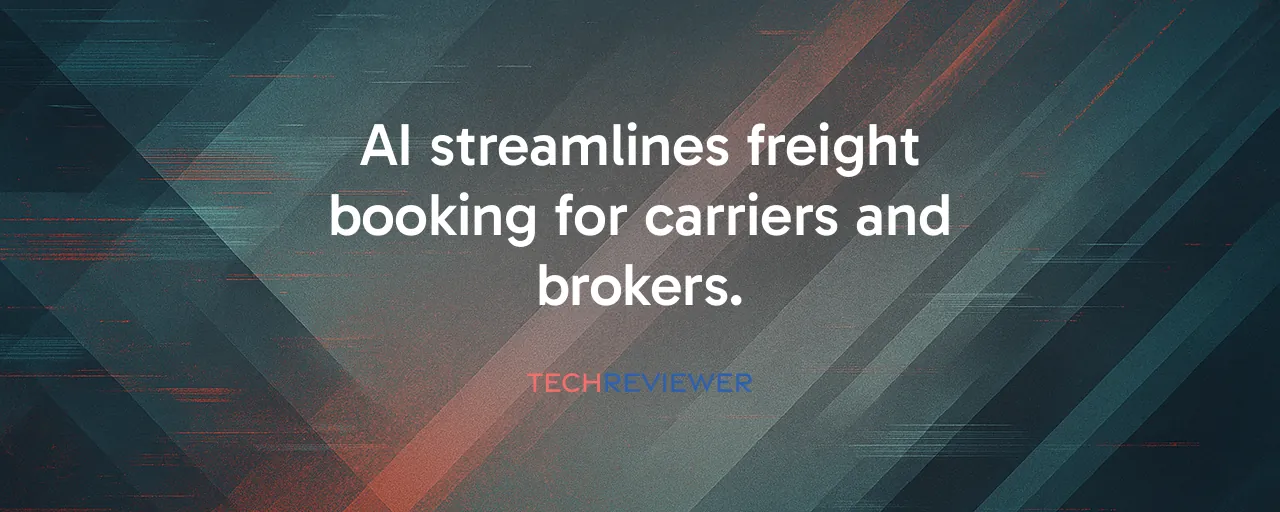From Phone Tag to AI Precision
Small trucking companies, the backbone of America's freight system, juggle endless phone calls and emails to book loads. With 3.5 million truckers, most running small fleets or solo operations, every minute spent on coordination eats into profits. FleetWorks, a startup born from Y Combinator's 2023 batch, aims to change that. Its AI-powered platform matches carriers with loads faster than traditional methods, cutting hours of manual work. In its first six months, FleetWorks onboarded over 10,000 carriers and major brokers like Uber Freight, showing serious traction.
The company's always-on AI dispatcher handles tasks like booking, tracking, and rescheduling with human-like precision via email and voice. This isn't about replacing people but freeing them to focus on strategy over repetitive tasks. For a sector where 80% of bookings still happen over the phone, this shift feels like a long-overdue upgrade. Paul Singer, a former Uber Freight product manager, and Quang Tran, an Airbnb alum, founded FleetWorks to tackle these inefficiencies head-on, drawing on their tech expertise.
Lessons From Convoy's Fall and Uber Freight's Pivot
The freight industry's tech journey hasn't been smooth. Convoy, a digital freight broker valued at $3.8 billion, crashed in October 2023 during a brutal freight recession. Despite raising $928 million and serving giants like Home Depot, it collapsed, leaving carriers unpaid and exposing the risks of growth-first models. Convoy's aggressive pricing to grab market share couldn't sustain thin margins when demand tanked. This cautionary tale looms large, reminding startups like FleetWorks that tech must deliver sustainable value, not just scale.
Contrast that with Uber Freight, which has leaned into innovation while partnering with platforms like FleetWorks. Morgan Stanley notes Uber Freight's growth comes from tools like route optimization and dynamic scheduling, not cutthroat pricing. Its collaboration with FleetWorks, even with Singer's past ties, signals confidence in AI's ability to boost efficiency without disrupting relationships. These cases show that tech succeeds when it integrates with existing systems and prioritizes clear ROI for users.
Tackling Fraud and Margin Squeeze
Freight brokers face relentless pressure in 2025, with gross margins shrinking across the board despite modest 1.6% volume growth. The industry spends $11 billion yearly on staff, with 70% handling repetitive tasks like over 1 billion phone calls. FleetWorks' AI cuts this burden, letting reps handle 50-60 loads daily, far beyond manual limits, while boosting margins by 1-4%. Yet, automation isn't a cure-all. Brokers like RXO still struggle with pricing missteps, showing tech must align with market realities.
Fraud's another hurdle, with a 41% spike in attempts in Q2 2025, including 495,267 fake emails and 42,421 suspicious calls. FleetWorks partners with Highway for carrier verification, ensuring insurance checks and fraud prevention. New FMCSA rules in 2025, mandating biometric ID checks, add complexity that AI must navigate. While the platform's multi-model AI reduces errors compared to single-model systems, trust remains critical in an industry where relationships drive deals.
Balancing Efficiency With Human Impact
For truckers, AI like FleetWorks' dispatcher means less time chasing loads and more time driving. Automation could cut empty miles, which hit 35% of total trips, saving fuel and boosting pay. Yet, some worry it'll favor big brokers, leaving small carriers sidelined. There's also the risk of job displacement, though FleetWorks argues it shifts workers to problem-solving roles, not order-taking. A rep using the platform can make 50 extra calls daily, focusing on relationships over logistics grunt work.
The broader impact is huge. Efficient freight networks could lower consumer prices and emissions, critical as e-commerce drives smaller, frequent shipments. But if AI consolidates power among large players, it might squeeze out small operators, a lifeline for many working-class drivers. With a projected 160,000-driver shortage by 2031 and 90% turnover at big carriers, tech that eases administrative burdens could improve driver retention, assuming it doesn't erode their autonomy.
Can AI Deliver Lasting Change?
FleetWorks' $17 million funding, led by Bill Trenchard of First Round Capital, signals investor belief in AI's potential. Trenchard, an early backer of Uber and Flexport, sees AI as ideal for managing the fluid, messy world of freight. Unlike rigid software, FleetWorks' platform adapts to real-time changes like pickup times or pricing spikes. Its 30% productivity boost for users shows promise, but scaling across thousands of carriers without errors is the real test. The industry's fragmentation, thousands of small players, makes network effects tough to achieve.
Convoy's collapse warns that tech alone won't win. FleetWorks must prove its AI delivers lasting efficiency, not just hype, while navigating fraud, compliance, and user trust. As the US freight brokerage market grows from $19.68 billion in 2025 to a projected $28.17 billion by 2030, platforms that balance automation with human relationships will likely lead. For now, FleetWorks offers a glimpse of a future where truckers spend less time on hold and more time moving goods.
